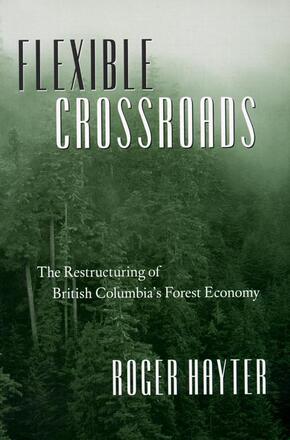
Flexible Crossroads
The Restructuring of British Columbia's Forest Economy
Description
British Columbia's forest economy is at a crucial crossroads. Its survival, Roger Hayter argues, rests on its ability to remain flexible and open to innovation – a future by no means assured given recent policy initiatives and the current contested nature of British Columbia's forests. Flexible Crossroads looks at the contemporary restructuring of British Columbia's forest economy, demonstrating how both resource dynamics – the transition from old growth to managed forests – and industrial dynamics – changing technology and global market forces – have shaped this transformation. Conceptually, the restructuring is portrayed as a shift from a commodity-based, cost-minimizing production system (Fordism) to a more product-differentiated, value-maximizing production system informed by the imperative of flexibility.
Awards
- Short-listed, Harold Adams Innis Prize, Canadian Federation for the Humanities and Social Sciences 2002
Reviews
Hayter offers a comprehensive and well-written treatise on the economic geography and history of the "forest economy" of British Columbia. He expertly describes the difficult conflicts between logging, jobs, people, indigenous people, and old growth.
- D.F. Karnosky